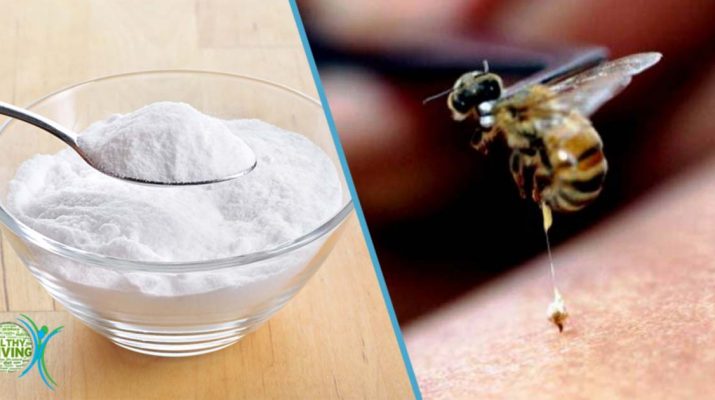When bees sting a person, they inject venom. This venom penetrates into the skin and causes redness and a painful reaction of the skin. However, not all bees die from injecting a person. Some can sting people multiple times.
Hornets, wasps, and yellow jackets can retract their stingers upon injecting a victim. So, be careful from these insects. Furthermore, 3% of people who are stung by bees have an allergic reaction. Plus, 0.8% of victims develop life-threating severe allergic reactions.
Even if these reactions are rare, it is still important to properly take care of the sting.
So, the victim can reduce the pain, swelling, and redness of the affected area. There are some areas that the pain can go away quickly, but, there are certain spots on the body where the pain can persist even for a week.
Here is what you can do to treat bee stings at home.
Note: You first have to remove the stinger before you apply any of these remedies.
1. Apple Cider Vinegar
The ACV can neutralize the venom from a bee. So, to apply it, you should put some of the vinegar on the affected area and cover it with a bandage. Also, you can soak a cloth in ACV and wrap it around the painful area.
Nevertheless, you should let the apple cider vinegar rest on the spot for 20 minutes at a time.
2. Activated Charcoal
To remove any leftover venom from a bee sting, you should use some activated charcoal. To apply it, mix it with some water or oil. When you get the proper paste and consistency, apply the charcoal on the affected area.
Remember, slowly dab some of the remedy and don’t massage the spot to avoid pain.
3. Baking Soda
Mix a bit of baking soda with some water until you get a paste. Next, apply the paste directly onto the sting to neutralize the venom. Besides, this remedy is useful for reducing itchiness, swelling, and pain.
4. Witch Hazel
This potent astringent has many anti-inflammatory properties. As such, it can be highly beneficial for calming bee stings, mosquito bites, and wasp stings. To apply it, all you have to do is dab some of the remedy on the skin and wait for it to take effect.
After some time, it can help reduce inflammation, itching, and redness.
5. Toothpaste
Even though toothpaste can be useful for treating bee stings, it doesn’t have the same effect on wasp venom. Nevertheless, it is a cheap and an easy remedy to use. Simply apply it on the affected area and let it rest on the skin.
6. Honey
The best way to avoid infection might be to use honey. This natural remedy has antibacterial properties which can help reduce inflammation and itching while it speeds up the healing process.
7. Ice
The simplest thing you can use to reduce redness is using ice. Besides, it can boost the healing process, reduce inflammation, and itching.
When to Contact Your Doctor
Usually, there is no need to contact your doctor.
However, if you experience some allergic reactions, like hives, dizziness, difficulty breathing, you should seek medical help. Also, if the bee sting, or the affected area, doesn’t go away after some time, or you were bitten multiple times, you should seek medical help.
Did you like this post? Leave us a comment and share this post with family and friends.

